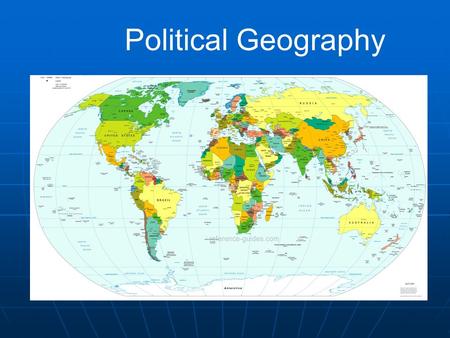Historical geography is the branch of geography that studies the ways in which geographic phenomena have changed over time. It is a synthesizing discipline that shares both topical and methodological similarities with history, anthropology, ecology, geology, environmental studies, literary studies, and other fields. Although the majority of work in historical geography is considered human geography, the field also encompasses studies of geographic change which are […]
Month: February 2019
What is Political Geography?
Political geography is concerned with the study of both the spatially uneven outcomes of political processes and the ways in which political processes are themselves affected by spatial structures. Conventionally, for the purposes of analysis, political geography adopts a three-scale structure with the study of the state at the centre, the study of international relations (or geopolitics) above it, and the study of […]
What is Physical Geography?
Physical geography (also known as geosystems or physiography) is one of the two major sub-fields of geography.[1][2][3] Physical geography is the branch of natural science which deals with the study of processes and patterns in the natural environment like the atmosphere, hydrosphere, biosphere, and geosphere, as opposed to the cultural or built environment, the domain […]
What is Economic Geography?
Economic geography has been defined by the geographers as the study of human’s economic activities under varying sets of conditions which is associated with production, location, distribution, consumption, exchange of resources, and spatial organization of economic activities across the world. It represents a traditional subfield of the discipline of geography. However, many economists have also […]
Cultural Geography – What is it?
Cultural geography is one of the two major branches of geography (versus physical geography) and is often called human geography. Cultural geography is the study of the many cultural aspects found throughout the world and how they relate to the spaces and places where they originate and then travel as people continually move across various […]





